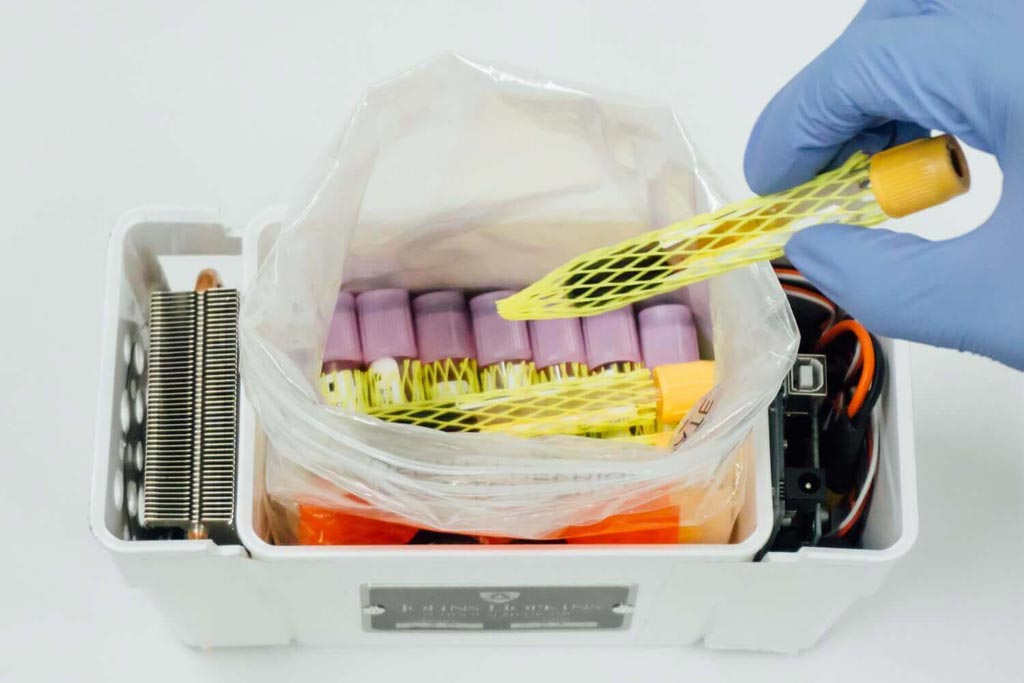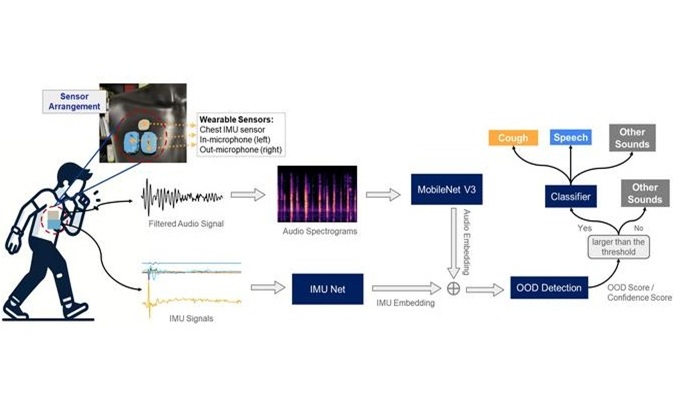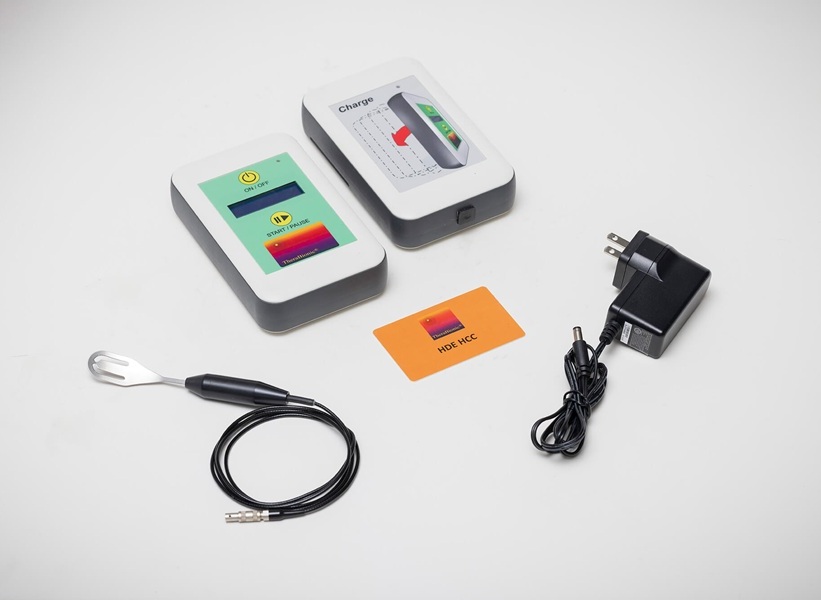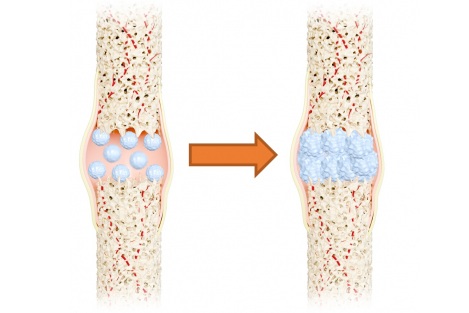New Distance Record Set by Medical Drone Transport
|
By HospiMedica International staff writers Posted on 28 Sep 2017 |

Image: The temperature-controlled specimen transport container used by the drones (Photo courtesy of JHU).
A new study describes how human blood samples were successfully transporting across almost 260 kilometers of Arizona desert.
Researchers at Johns Hopkins University School of Medicine (JHU-SOM; Baltimore, MD, USA), the Mayo Clinic (Scottsdale, AZ, USA), and the University of Arizona (Tucson, USA) conducted a study to assess the stability of paired biological samples from 21 adult volunteers in prolonged drone flights. In all, the researchers collected 84 chemistry and hematology samples in a single phlebotomy event. Half of the samples were held stationary, while the other half were flown in a custom active-cooling box mounted on the drone.
Throughout the three-hour, 258 kilometer flight, the on-board payload system maintained constant temperature at 24.8°C, ensuring the samples were viable for 19 chemistry and hematology laboratory tests after landing. The results showed that while 17 of the analytes showed small or no bias, glucose and potassium in the flown samples showed an 8% and 6.2% bias, respectively, which was attributed to chemical degradation from slightly warmer temperature (+2.5°C) in the stationary samples. The study was published on September 5, 2017, in the American Journal of Clinical Pathology.
“We expect that in many cases, drone transport will be the quickest, safest and most efficient option to deliver some biological samples to a laboratory from rural or urban settings," said lead author Timothy pathologist Amukele, MD, PhD, of JHU. “Drones can operate where there are no roads, and overcome conditions that disable wheeled vehicles, traffic and other logistical inefficiencies that are the enemy of improved, timely patient diagnoses and care.”
Drones are already being used in Rwanda to transport vital medications, vaccines, and blood supplies. The drones, manufactured by Zipline (San Francisco, CA, USA; flyzipline.com/product), can reach a speed of 140 km/hour and fly in inclement weather and heavy winds. Using a GPS, the unmanned drones are able to fly autonomously, based on a pre-determined route, before dropping their payload at the required location. They can carry up to 1.6 kilograms, equal to two standard packets of blood.
Related Links:
Johns Hopkins University School of Medicine
Mayo Clinic
University of Arizona
Researchers at Johns Hopkins University School of Medicine (JHU-SOM; Baltimore, MD, USA), the Mayo Clinic (Scottsdale, AZ, USA), and the University of Arizona (Tucson, USA) conducted a study to assess the stability of paired biological samples from 21 adult volunteers in prolonged drone flights. In all, the researchers collected 84 chemistry and hematology samples in a single phlebotomy event. Half of the samples were held stationary, while the other half were flown in a custom active-cooling box mounted on the drone.
Throughout the three-hour, 258 kilometer flight, the on-board payload system maintained constant temperature at 24.8°C, ensuring the samples were viable for 19 chemistry and hematology laboratory tests after landing. The results showed that while 17 of the analytes showed small or no bias, glucose and potassium in the flown samples showed an 8% and 6.2% bias, respectively, which was attributed to chemical degradation from slightly warmer temperature (+2.5°C) in the stationary samples. The study was published on September 5, 2017, in the American Journal of Clinical Pathology.
“We expect that in many cases, drone transport will be the quickest, safest and most efficient option to deliver some biological samples to a laboratory from rural or urban settings," said lead author Timothy pathologist Amukele, MD, PhD, of JHU. “Drones can operate where there are no roads, and overcome conditions that disable wheeled vehicles, traffic and other logistical inefficiencies that are the enemy of improved, timely patient diagnoses and care.”
Drones are already being used in Rwanda to transport vital medications, vaccines, and blood supplies. The drones, manufactured by Zipline (San Francisco, CA, USA; flyzipline.com/product), can reach a speed of 140 km/hour and fly in inclement weather and heavy winds. Using a GPS, the unmanned drones are able to fly autonomously, based on a pre-determined route, before dropping their payload at the required location. They can carry up to 1.6 kilograms, equal to two standard packets of blood.
Related Links:
Johns Hopkins University School of Medicine
Mayo Clinic
University of Arizona
Latest Patient Care News
- Revolutionary Automatic IV-Line Flushing Device to Enhance Infusion Care
- VR Training Tool Combats Contamination of Portable Medical Equipment
- Portable Biosensor Platform to Reduce Hospital-Acquired Infections
- First-Of-Its-Kind Portable Germicidal Light Technology Disinfects High-Touch Clinical Surfaces in Seconds
- Surgical Capacity Optimization Solution Helps Hospitals Boost OR Utilization

- Game-Changing Innovation in Surgical Instrument Sterilization Significantly Improves OR Throughput
- Next Gen ICU Bed to Help Address Complex Critical Care Needs
- Groundbreaking AI-Powered UV-C Disinfection Technology Redefines Infection Control Landscape
- Clean Hospitals Can Reduce Antibiotic Resistance, Save Lives
- Smart Hospital Beds Improve Accuracy of Medical Diagnosis
- New Fast Endoscope Drying System Improves Productivity and Traceability
- World’s First Automated Endoscope Cleaner Fights Antimicrobial Resistance
- Portable High-Capacity Digital Stretcher Scales Provide Precision Weighing for Patients in ER
- Portable Clinical Scale with Remote Indicator Allows for Flexible Patient Weighing Use
- Innovative and Highly Customizable Medical Carts Offer Unlimited Configuration Possibilities
- Biomolecular Wound Healing Film Adheres to Sensitive Tissue and Releases Active Ingredients
Channels
Critical Care
view channel
Origami Robots to Deliver Medicine Less Invasively and More Effectively
Delivering medicine to ulcers or other internal sites often requires invasive procedures that can disrupt surrounding tissues and lengthen recovery times. Traditional magnetic actuators used in soft robotics... Read more
Improved Cough-Detection Technology Aids Health Monitoring
Coughing serves as an important biomarker for tracking a variety of conditions and can help monitor the progress of respiratory diseases or predict when someone’s asthma is being exacerbated.... Read moreSurgical Techniques
view channel
Novel Glue Prevents Complications After Breast Cancer Surgery
Seroma and prolonged lymphorrhea are among the most common complications following axillary lymphadenectomy in breast cancer patients. These postoperative issues can delay recovery and postpone the start... Read more
Breakthrough Brain Implant Enables Safer and More Precise Drug Delivery
Delivering medication directly to specific regions of the brain has long been a major challenge in treating neurological disorders. Current implants and infusion systems typically reach only one or two... Read moreHealth IT
view channel
Printable Molecule-Selective Nanoparticles Enable Mass Production of Wearable Biosensors
The future of medicine is likely to focus on the personalization of healthcare—understanding exactly what an individual requires and delivering the appropriate combination of nutrients, metabolites, and... Read moreBusiness
view channel
Philips and Masimo Partner to Advance Patient Monitoring Measurement Technologies
Royal Philips (Amsterdam, Netherlands) and Masimo (Irvine, California, USA) have renewed their multi-year strategic collaboration, combining Philips’ expertise in patient monitoring with Masimo’s noninvasive... Read more
B. Braun Acquires Digital Microsurgery Company True Digital Surgery
The high-end microsurgery market in neurosurgery, spine, and ENT is undergoing a significant transformation. Traditional analog microscopes are giving way to digital exoscopes, which provide improved visualization,... Read more
CMEF 2025 to Promote Holistic and High-Quality Development of Medical and Health Industry
The 92nd China International Medical Equipment Fair (CMEF 2025) Autumn Exhibition is scheduled to be held from September 26 to 29 at the China Import and Export Fair Complex (Canton Fair Complex) in Guangzhou.... Read more
















